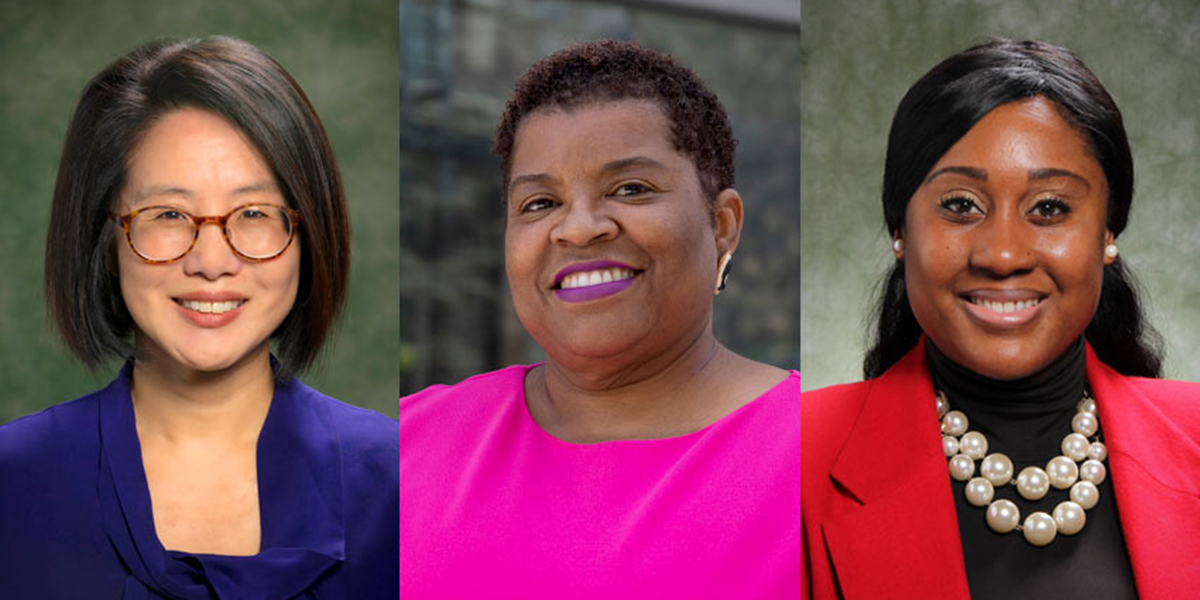Binghamton joins National Center for Faculty Development & Diversity

Binghamton University recently made a three-year commitment in support of faculty development by joining the National Center for Faculty Development & Diversity (NCFDD) as an institutional member. The NCFDD is an independent professional development, training and mentoring community of faculty, postdocs and graduate students from over 450 colleges and universities.
As a member, all Binghamton University faculty, postdocs and graduate students have access to a number of tools to support their professional and academic development.
“When I first took my position in the dean’s office, I knew that I would need resources to assist me in both parts of my role, in supporting faculty development and advancing diversity, equity, and inclusion. I sought advice from my counterparts at other universities. They all asked if we were a member of the NCFDD,” said Nancy Um, associate dean for faculty development and inclusion with Harpur College of Arts and Sciences. “I looked into it and learned that SUNY gave every PRODiG hire a one-year membership. It’s very well recognized.”
When one of those PRODiG hires approached Donald Nieman, executive vice president for academic affairs and provost, about his positive experience with the center, Nieman also looked into it. “The people I talked to, many with direct experience, said ‘This is really valuable. I used it when I was a grad student.”
It became clear, Nieman said, that joining as an institutional member would be good for Binghamton’s faculty — beginning faculty, new tenure-track faculty and also those who have just been tenured and promoted. “We want to make sure they stay on a trajectory where they seek promotion to full professor as soon as possible,” he said. “We do a good job of mentoring on campus; we’ve had a real shift in our culture over the past decade to recognize its importance. And graduate students can participate so it seemed to me the audience was potentially really large and that fits in with our enhanced efforts in recent years to improve mentoring.
“Our faculty are probably our most important resource on campus. Our ceiling is defined by them and we want that ceiling to be as limitless as possible,” Nieman added. “We recruit great faculty, but once they’re recruited we want them to fly as high as they can fly and mentoring is a part of that.”
Seeing the value that the program brought to the PRODiG hires, Vice President for Diversity, Equity and Inclusion Karen Jones involved Um, Assistant Vice President for Diversity Nicole Sirju-Johnson and Sharon Bryant, associate dean for diversity, equity and inclusion for Decker College of Nursing and Health Sciences, as administrators of the University’s membership.
Jones, too, puts mentoring high on the list of priorities, in particular for graduate students.
As someone who never heard from her faculty when she was a master’s student that she might consider getting her doctorate or joining academia, Jones said she is “hoping this creates those opportunities for our graduate students and helps our tenure-track faculty and postdocs to think about a world of possibilities,” she said. “How do we help them think about becoming professors? How do they continue along the pathway of sharpening their research and publications? How do they create relationships with others across the country that without this resource they might never meet?
“This is a way to support our new faculty members through the tenure process,” Jones added. “I think of mentoring in a myriad of ways like the orchestrated mentoring from a predecessor in your position. We have that. Then there’s someone you have a natural affinity toward and a natural, organic relationship that just blooms; so, essentially you have the titled mentoring relationship and the organic relationship.”
The longstanding idea has seemed to be that new faculty should just find a mentor and that will help, Um said. “That works for some, but the academy has gotten complicated and is changing fast. It’s been acknowledged that people need more resources, especially people from marginalized and underrepresented groups.”
Once an individual has logged into NCFDD, “they will see a dashboard that will guide them through some of the core program resources, in addition to lots of on-demand webinars,” said Um. “There is also an events page. Individuals can take advantage of many topics such as women and BIPOC scholars in the academy and the challenges they face. There are sessions on how to do media interviews or how to cope with writer’s block, for example.
“Many of the webinars are about all of the things that faculty do, but that none of us are actually trained to do,” Um said.

